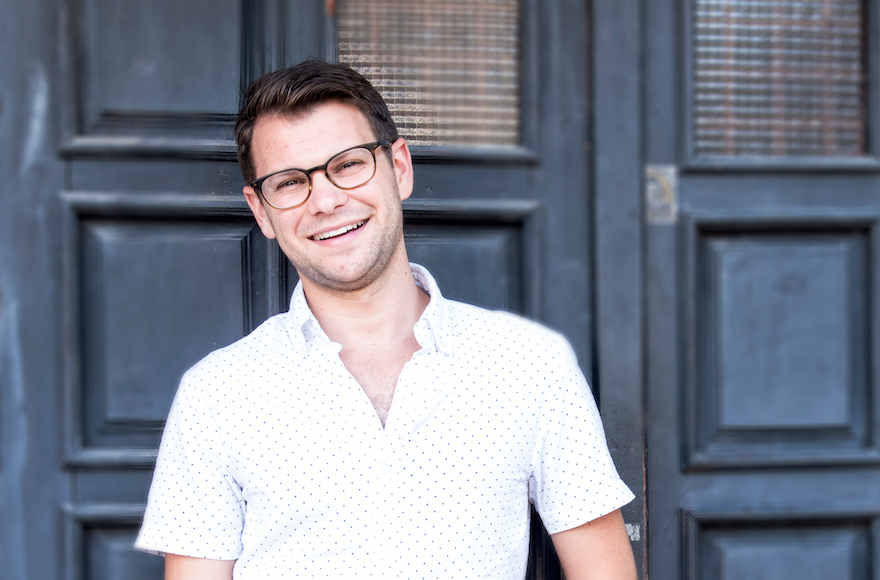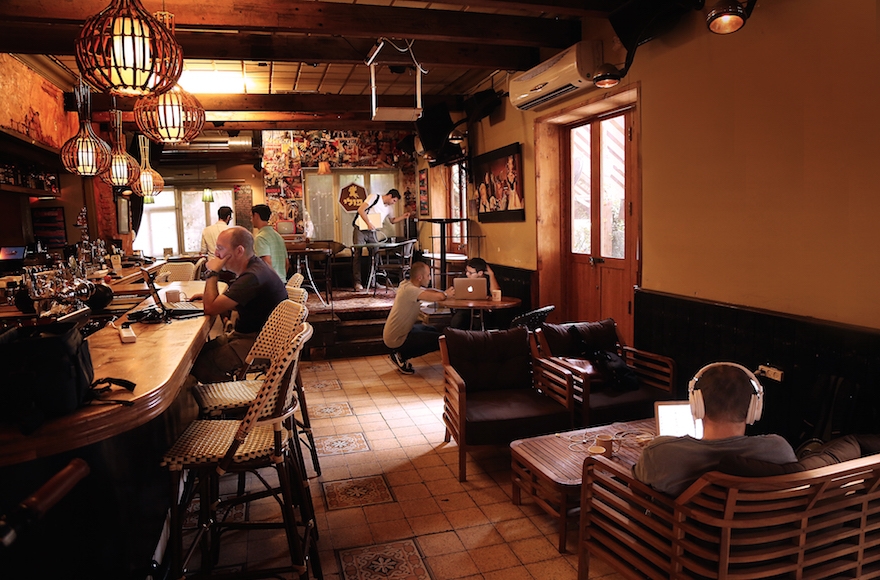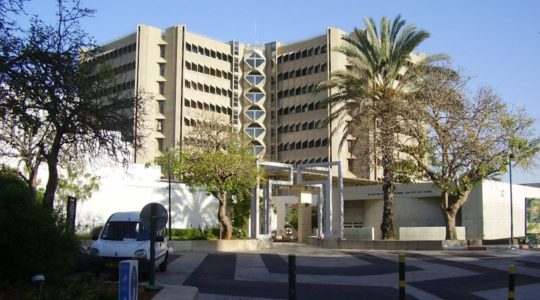TEL AVIV (JTA) – Meet Daniel Rubin, in many ways the new face of aliyah.
Originally from Los Angeles, Rubin, 27, moved to Israel a decade ago to study at a Jerusalem yeshiva. In the following years he served in the Israeli army and bounced back and forth between Israel and the U.S. for college and work.
Last month, he and his wife immigrated to Israel and settled in Tel Aviv so he could found a startup and they could enjoy the coastal city’s Mediterranean lifestyle. The couple were among about 3,000 new immigrants who made this city home in 2016, helping Tel Aviv retain its title as the “aliyah capital” of Israel.
“Tel Aviv is young, Tel Aviv is fun, Tel Aviv is exciting,” Rubin told JTA. “And I’m from L.A., so I love the beach.”
As the wave of immigrants from the former Soviet Union has ebbed since the 1990s, aliyah has reached historic lows. Among those who have continued coming, a greater ratio have been people like Rubin — Westerners who tend to want to launch their Israel experience in big cities. Tel Aviv, the nation’s cultural center, has been the favorite destination for the past three years.

Daniel Rubin: “Tel Aviv is young, Tel Aviv is fun, Tel Aviv is exciting.” (Noi Arkobi)
“Israel rescued millions of people from disadvantaged societies in Muslim countries and Eastern Europe,” said Sergio DellaPergola, a preeminent scholar of Jewish demography and migration. “But today, Diaspora Jews are overwhelmingly free people, mostly employed and mostly urban. There are no more rural Jews, no more persecuted Jews in ghettos, and therefore the whole migration balance is totally different. Aliyah is voluntary and based on Israel’s capability to offer employment and a good life.”
Israel was largely built by Jews escaping persecution. In the 19th and 20th centuries, Russian pogroms, European anti-Semitism and the Nazis helped populate pre-state and early Israel. The country’s Jewish ranks then swelled with consecutive floods of Jews fleeing the Middle East from the 1950s, Ethiopia from the 1970s and the former Soviet Union countries from the 1990s.
In recent years, anti-Semitism in France and war in Ukraine have contributed to another uptick in aliyah, with Russian immigration hitting a 10-year high in 2016. But the broader trend since the early 1990s is downward. Aliyah from the former Soviet Union has largely run its course — after bringing almost a million immigrants to Israel — and overall numbers have reached lows only seen before in the 1980s, data from Israel’s Central Bureau of Statistics shows.
Meanwhile, immigration to Israel from Western countries — mostly Europe and the United States — has remained relatively steady. Therefore, new arrivals from the West now account for a much larger percentage of the total.
And apparently, Western Jews prefer big cities. Looking at all aliyah since 1989, no Israeli city has attracted more than 4 percent of new immigrants, with Tel Aviv — which is Israel’s second most populous city — getting just 3 percent. But in 2016, Tel Aviv was the destination for 12 percent of the 27,000 new immigrants. The next three most popular cities were Jerusalem (10 percent), Netanya (9 percent) and Haifa (8 percent), according to the Ministry of Aliyah and Immigrant Integration.

A dog walker plying his trade on a bicycle in central Tel Aviv, June 18, 2015. (Miriam Alster/Flash90)
Uri Gafni, an official at Excel, an entrepreneurship program started this year by Birthright Israel, explained that Tel Aviv’s startup scene and liberal, cosmopolitan lifestyle are big draws.
“Tel Aviv embodies many of the things these young professionals are looking for when they come to Israel — they want the nightlife and the bars and the beach and this delicate balance between lifestyle and work in an environment that is liberal and open to a variety of people from all over the world,” he said.
“I think it’s easier for secular Jews around the world to relate to Tel Aviv than to Jerusalem. It’s much sexier for Jews to hang out in Tel Aviv, where they can finish the day and go drink a beer on Rothschild.”
Israel weathered the global recession better than most countries, and Tel Aviv is its financial and business center. The Israeli economy has grown by an average of nearly 4 percent annually over the past 13 years, and unemployment has fallen almost to 5 percent. According to Tel Aviv’s municipal government, the city is home to about 1,450 of the country’s 5,000 early-stage companies, which is more than one startup for every 300 residents — the highest ratio of any city in the world.
Many of those startups look to reach the international market, providing plenty of jobs for native English speakers.
Beyond the job prospects, there is the famous Tel Aviv lifestyle — the cafes, the nightlife and the beaches, plus the prevalence of English speakers. Tel Aviv boasts 1,748 cafes, bars and nightclubs — one for every 230 residents — along with some 1,500 restaurants, according to the municipality.

Israelis working at the Pub Hub at Polly Bar in Tel Aviv, November 2016. (Noi Arkobi)
Tel Aviv is said to attract a secular crowd. But a growing number of Orthodox Jews are coming to the city, according to officials at Nefesh B’Nefesh, an aliyah services provider. Seventeen percent of the immigrants they helped make aliyah to the city in the past two years were Orthodox, the agency’s numbers show — similar to the community’s representation in all of Israel.
After a year in Jerusalem, Rubin and his wife, Talia, 23, moved to Tel Aviv. They loved Jerusalem, Rubin said, and the modern Orthodox community in the capital. But only in Tel Aviv could he launch The Pub Hub, his startup that turns bars into co-working spaces during the day. He opened the first location last month on Rothschild Boulevard, the city’s most happening thoroughfare.
“The vibe here — the energy and the opportunities — you just can’t find anywhere else,” he said.
However, there may be a price to attracting people with options. According to DellaPergola, many immigrants to Tel Aviv return to their home countries at some point, or to move back and forth. Even those who build a life in Israel often get priced out of the city, where already high housing prices leaped 13 percent this summer from a year earlier.
But, he said, Tel Aviv has thrived in recent decades because those who have left have been replaced by newcomers eager for their turn at life in the big city.
JTA has documented Jewish history in real-time for over a century. Keep our journalism strong by joining us in supporting independent, award-winning reporting.






